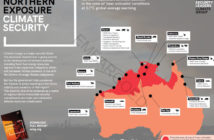McAfee, part of Intel Security, has released a free tool to help consumers easily gauge their susceptibility to the potentially dangerous effects of the Heartbleed Bug, a vulnerability in OpenSSL that has placed millions of Internet users’ personal information at risk.
To access McAfee’s free Heartbleed Checker visit: http://tif.mcafee.com/heartbleedtest
By entering website domain names into the Heartbleed Checker tool, consumers can immediately determine if the websites they frequent have been affected by Heartbleed by checking whether or not the sites have been upgraded to the version of OpenSSL that is unsusceptible to the bug.
“It’s important that users first check to make sure the websites they frequent are updated before changing their passwords,” said Gary Davis, vice president of consumer marketing at McAfee, part of Intel Security.
Steps to protect yourself:
- Go to McAfee’s Heartbleed Checker tool http://tif.mcafee.com/heartbleedtest and enter any website URL to check if it’s vulnerable.
- If the site is deemed safe your next step is to change your password for that site. Remember, changing your password before a site is patched will not protect you and your information.
- If the site is vulnerable, then your best bet is to monitor the activity on that account frequently looking for unauthorised activity.
- Once a site has been patched so it’s no longer vulnerable to the Heartbleed bug, you should change your password. Here are some tips to remember:
- Use strong passwords that include a combination of letters, numbers and symbols and are longer than 8 characters in length – the longer the better.
- Use a password manager, like McAfee SafeKey which is included with McAfee LiveSafe™ service that will help you create strong password and remember them for you.
- Use two-factor authentication for increased security. You get a one-time code every time someone tries to log into the account, such as those for banks, social networks and email.





